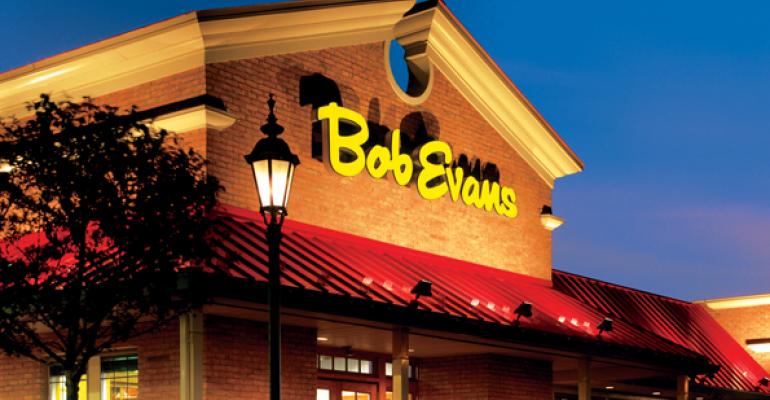Sandell Asset Management, which more than a year ago won four seats on the board at Bob Evans Farms Inc., could nominate more members amid continued frustration over the company’s packaged foods subsidiary.
The activist and large Bob Evans shareholder said in a Securities and Exchange Commission filing Friday that the company needs to hire a financial advisor to study a possible sale of BEF Foods — which Sandell believes should be spun off or sold.
The filing comes two days after Sandell’s CEO Thomas Sandell questioned Bob Evans’ new CEO Saed Mohseni about the future of BEF Foods during the company’s earnings call Wednesday.
The filing said that Sandell is “disappointed” that Bob Evans “did not announce any specific plan on its March 2, 2016 investor conference call to retain an investment banking firm to advise on the various options available in order to achieve a separation of the Bob Evans Restaurants and BEF Foods businesses or to otherwise increase shareholder value.”
The filing said that Bob Evans “must immediately retain and announce the retention of an investment banking firm” to advise on the available options.
In the end, Sandell said it plans to discuss the issues with the board and management, along with “matters related to shareholder board representation,” suggesting it could nominate more people to Bob Evans’ board of directors.
A Bob Evans spokesman would not comment on Friday.
At issue is whether Bob Evans should sell BEF Foods, the company's successful and profitable division that sells packaged sausage and side dishes at retail locations like grocery stores.
That division has been a primary bone of contention between Sandell and Bob Evans for years. Sandell believes that shareholders would be better off if that division were sold. Bob Evans has resisted those demands.
Sandell, which currently owns 7 percent of Bob Evans stock, began pushing the company to spin off that division late in 2013 and then started a proxy fight in 2014, winning four board seats by late summer.
After that proxy fight, the company started cutting costs and selling real estate. The company earlier this week said it cut $12 million in costs as part of a three-year plan to trim $35 million in expenses. It also is nearing the completion of a $200 million sale-leaseback of 145 restaurant properties.
But it has so far refused to budge on its belief that BEF Foods should remain as part of the company.
Restaurant companies sell a lot of licensed products inside grocery stores, but for the most part they license those brand names to food manufacturers. Bob Evans owns the whole process, including manufacturing plants.
In the quarter ended Jan. 22, BEF Foods generated only about half of the sales of the restaurants division, $112.9 million versus $238.6 million.
But BEF Foods’ operating income was higher, at $20.6 million, than the restaurants’ $14.5 million.
A year ago, Bob Evans announced that it wouldn’t consider a sale, citing a report from its financial advisor, Lazard, which said low taxes associated with BEF Foods would require the company to sell it at a high multiple to make a sale worthwhile.
Sandell has continued pushing the issue. In December, Sandell sent a letter to Bob Evans, suggesting a sale could fetch the company $1 billion.
But on Wednesday, Thomas Sandell took the issue public on the chain’s earnings call.
He noted BEF Foods could be worth “well over $1 billion,” even though Bob Evans’ market capitalization is currently less than $1 billion. “Your stock price is not reflecting this potential value,” Sandell said.
It was the first earnings call for Bob Evans’ new CEO, Saed Mohseni.
Mohseni said that the company “will continue to look at all options to enhance shareholder value” but would not commit to another analysis of a BEF Foods sale.
He acknowledged that Bob Evans isn’t getting full credit on Wall Street for the value of BEF Foods, but he said the company is getting some credit, that it is trading at a higher value than other restaurant chains with declining sales. Bob Evans’ same-store sales fell 3.6 percent in the most recent quarter.
“We need to educate shareholders on the fact that the food division is a profitable business,” Mohseni said.
Contact Jonathan Maze at [email protected]
Follow him on Twitter: @jonathanmaze





